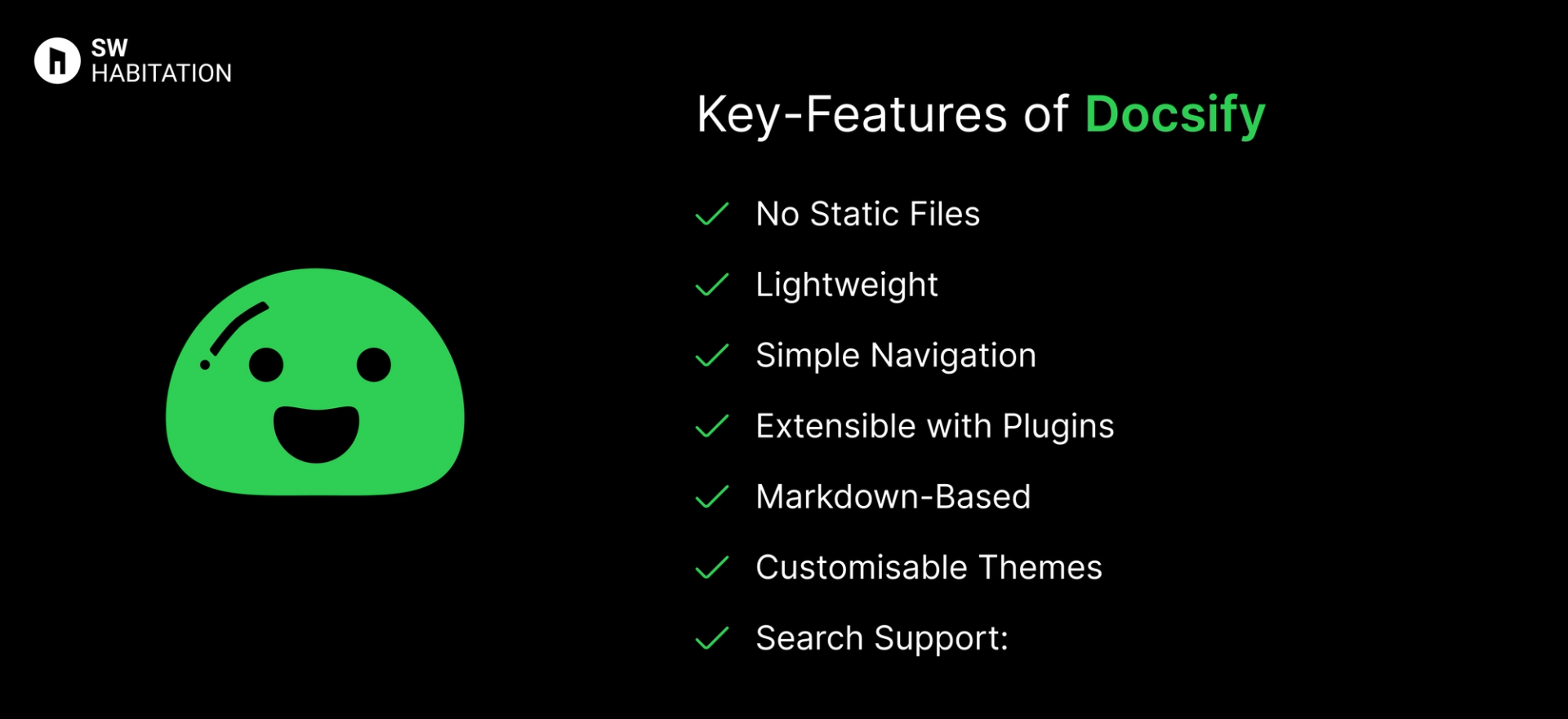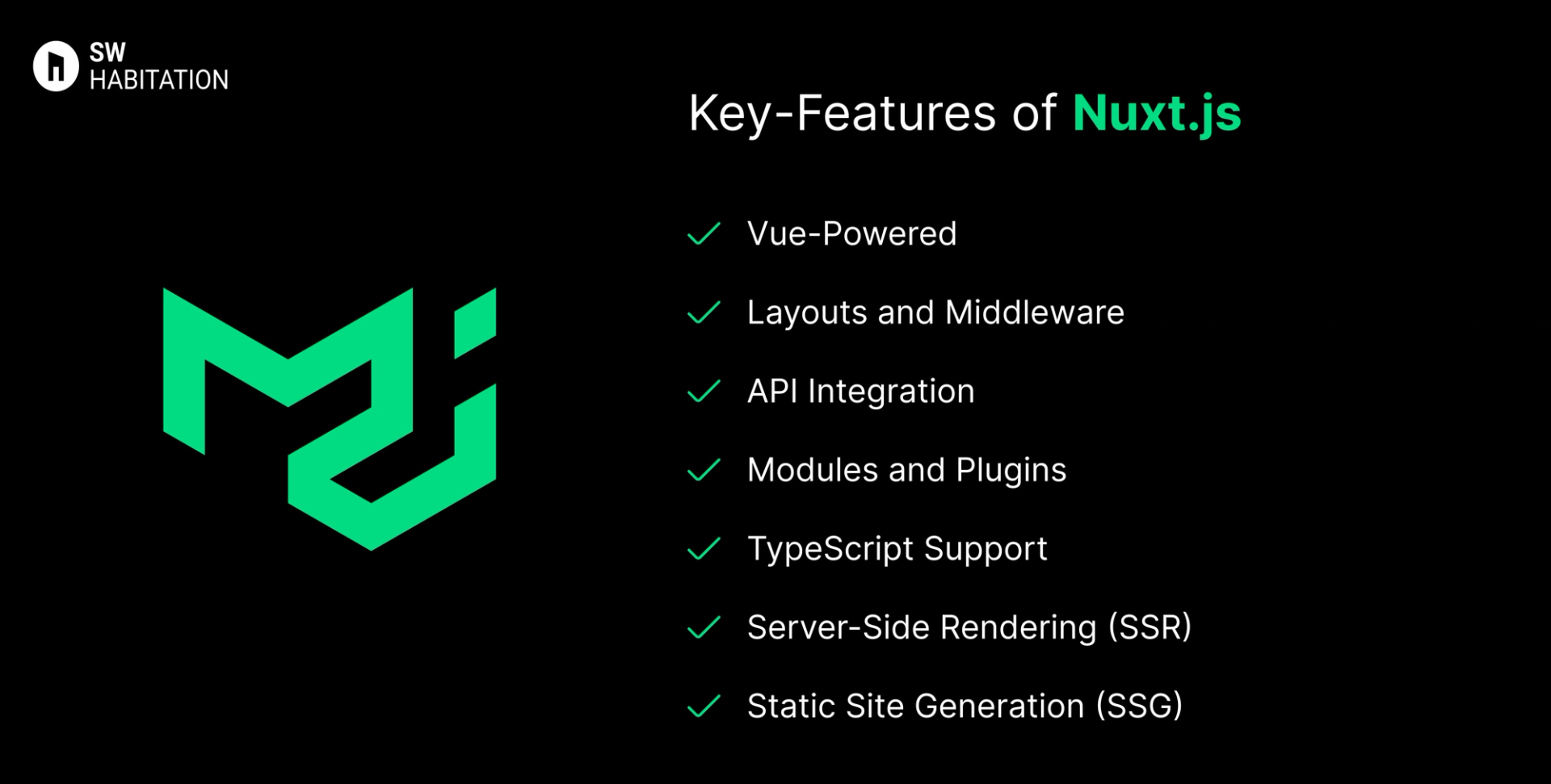Docsify vs. Nuxt js

Docsify

Nuxt js
So, you know when you want to build a website or app, but doing everything from scratch feels kinda overwhelming? That’s where web frameworks come in. They’re like a ready-made set of tools and building blocks that help you get things up and running way faster. Instead of figuring out every little piece yourself, a framework gives you a solid base to build on, and lets you focus on making something cool.
What is Docsify?
Docsify is a documentation site generator that works by rendering Markdown files in the browser.
Unlike traditional static site generators, docsify doesn’t pre-generate static HTML files. Instead, it loads and renders content dynamically using JavaScript. This makes it incredibly lightweight and super easy to maintain, no need to rebuild the site every time you make a change.
Key Features of Docsify


- No Static Files: No need to pre-generate pages it renders them dynamically.
- Lightweight: The core library is tiny its just a single JavaScript file.
- Simple Navigation: Automatically generates sidebars and navigation.
- Extensible with Plugins: Add features like pagination, copy-to-clipboard, or Google Analytics.
- Markdown-Based: Write your docs in Markdown for simplicity.
- Customisable Themes: Adjust the look and feel with ease.
- Search Support: Built-in search functionality.
Advantages of Docsify
- Great for Small Projects: Perfect for simple documentation sites or project wikis.
- Super Easy Setup: No build step needed just drop a few files into your project.
- Light and Fast: No bulky dependencies, just pure simplicity here.
- Instant Updates: Changes reflect instantly without rebuilding the site.
- Minimal Learning Curve: If you know Markdown, you’re already halfway there.
Disadvantages of Docsify
- JavaScript Dependency: Requires JavaScript to render content, so it won’t work well in environments where JavaScript is disabled.
- Limited Scalability: Best for smaller documentation projects.
- No Static Files: Not ideal for SEO, as content is rendered client-side.
What is Nuxt.js?
Nuxt.js is a framework built on top of Vue.js that helps you create modern web applications with ease. It supports Static Site Generation (SSG), Server-Side Rendering (SSR), and Single Page Applications (SPA) which is giving you the flexibility to pick the right rendering mode for each page. Whether you’re crafting a personal blog or a high-traffic e-commerce site, Nuxt.js provides a clean structure and optimizations right out of the box.
Key Features of Nuxt.js


- Vue-Powered: Leverages Vue.js, making it super intuitive for Vue developers.
- Layouts and Middleware: Structure your app with reusable layouts and protect routes with middleware.
- API Integration: Easily fetch data at build time or runtime using asyncData or fetch.
- Modules and Plugins: Extend functionality with Nuxt’s huge ecosystem of modules.
- TypeScript Support: Offers built-in support for TypeScript if you prefer type safety.
- Server-Side Rendering (SSR): Boosts performance and SEO by rendering pages on the server.
- Static Site Generation (SSG): Generate static HTML pages for even faster performance.
Advantages of Nuxt.js
- Modular Architecture: Customize your app by adding only the modules you need.
- Simplified Project Structure: Organizes your app into logical folders, reducing boilerplate.
- Great Developer Experience: Hot Module Replacement (HMR) and fast build times keep development smooth.
- Versatile Rendering Modes: Choose SSG, SSR, or SPA per page to suit your needs.
- SEO-Friendly: SSR and SSG ensure search engines can easily crawl your content.
Disadvantages of Nuxt.js
- SSR Complexity: Debugging SSR issues can sometimes be tricky, especially when dealing with external APIs.
- Learning Curve: If you’re new to Vue, adding Nuxt on top can feel like a lot at first.
- Build Complexity: Projects with tons of pages may experience slower build times during static generation.
Comparison Between Docsify vs Nuxt js
Use Cases of Docsify
- No-Build Workflows: If you hate build steps, Docsify’s dynamic loading is a dream.
- Markdown Lovers: Write everything in Markdown and let Docsify handle the rest.
- Small Projects: Ideal for simple projects, personal wikis, or README-driven sites.
- Quick Documentation: Need a doc site in minutes? Docsify delivers.
Use Cases of Nuxt js
- Corporate Websites: Build fast, SEO-optimized websites with reusable components.
- Dashboards: Leverage Vue’s component system to create complex dashboards with ease.
- Blogs and Portfolios: Optimize for performance and SEO effortlessly.
- E-commerce: Use SSR to handle dynamic product pages and SSG for category pages.
Other Resources
Conclusion
Web frameworks make building websites and apps a whole lot easier. Whether you’re working on a personal project or something big for work, they help with the heavy lifting—like routing, design structure, and how everything connects.
With support for things like server-side rendering, optimized performance, and developer-friendly features, these tools let you create faster, smarter, and cleaner websites. Just pick the one that fits your style, and start building something awesome 🚀
Frequently asked questions
Is Docsify beginner-friendly?
Absolutely, Docsify is designed to be simple and easy to set up plus its is ideal for anyone who needs to create documentation fast.
Can I customize Docsify?
Yes, Docsify is highly customizable with themes, plugins, and configuration options. You can tailor it to fit your branding or specific project needs.
Does Docsify require a static build?
Nup, Docsify generates your docs on-the-fly in the browser. Just write Markdown, and Docsify takes care of the rest.
Is Docsify good for small projects?
Yes, Docsify is excellent for creating quick documentation sites and smaller projects without the overhead of a static build process.
Is Nuxt.js free to use?
Yup, it’s completely free and open-source.
Do I need to know Vue to use Nuxt.js?
Yup, Nuxt.js is built on Vue, so understanding Vue is necessary.
Can Nuxt.js handle large applications?
Absolutely, Nuxt scales well for both small projects and enterprise-level applications.
Is Nuxt.js good for SEO?
Yup, Thanks to SSR and SSG, Nuxt ensures search engines can properly index your content.
